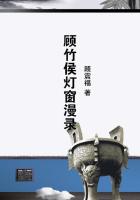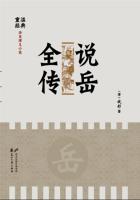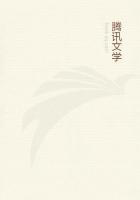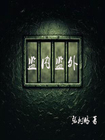The Erewhonians regard death with less abhorrence than disease. If it is an offence at all, it is one beyond the reach of the law, which is therefore silent on the subject; but they insist that the greater number of those who are commonly said to die, have never yet been born--not, at least, into that unseen world which is alone worthy of consideration. As regards this unseen world I understand them to say that some miscarry in respect to it before they have even reached the seen, and some after, while few are ever truly born into it at all--the greater part of all the men and women over the whole country miscarrying before they reach it. And they say that this does not matter so much as we think it does.
As for what we call death, they argue that too much has been made of it. The mere knowledge that we shall one day die does not make us very unhappy; no one thinks that he or she will escape, so that none are disappointed. We do not care greatly even though we know that we have not long to live; the only thing that would seriously affect us would be the knowing--or rather thinking that we know--the precise moment at which the blow will fall. Happily no one can ever certainly know this, though many try to make themselves miserable by endeavouring to find it out. It seems as though there were some power somewhere which mercifully stays us from putting that sting into the tail of death, which we would put there if we could, and which ensures that though death must always be a bugbear, it shall never under any conceivable circumstances be more than a bugbear.
For even though a man is condemned to die in a week's time and is shut up in a prison from which it is certain that he cannot escape, he will always hope that a reprieve may come before the week is over. Besides, the prison may catch fire, and he may be suffocated not with a rope, but with common ordinary smoke; or he may be struck dead by lightning while exercising in the prison yards.
When the morning is come on which the poor wretch is to be hanged, he may choke at his breakfast, or die from failure of the heart's action before the drop has fallen; and even though it has fallen, he cannot be quite certain that he is going to die, for he cannot know this till his death has actually taken place, and it will be too late then for him to discover that he was going to die at the appointed hour after all. The Erewhonians, therefore, hold that death, like life, is an affair of being more frightened than hurt.
They burn their dead, and the ashes are presently scattered over any piece of ground which the deceased may himself have chosen. No one is permitted to refuse this hospitality to the dead: people, therefore, generally choose some garden or orchard which they may have known and been fond of when they were young. The superstitious hold that those whose ashes are scattered over any land become its jealous guardians from that time forward; and the living like to think that they shall become identified with this or that locality where they have once been happy.
They do not put up monuments, nor write epitaphs, for their dead, though in former ages their practice was much as ours, but they have a custom which comes to much the same thing, for the instinct of preserving the name alive after the death of the body seems to be common to all mankind. They have statues of themselves made while they are still alive (those, that is, who can afford it), and write inscriptions under them, which are often quite as untruthful as are our own epitaphs--only in another way. For they do not hesitate to describe themselves as victims to ill temper, jealousy, covetousness, and the like, but almost always lay claim to personal beauty, whether they have it or not, and, often, to the possession of a large sum in the funded debt of the country. If a person is ugly he does not sit as a model for his own statue, although it bears his name. He gets the handsomest of his friends to sit for him, and one of the ways of paying a compliment to another is to ask him to sit for such a statue. Women generally sit for their own statues, from a natural disinclination to admit the superior beauty of a friend, but they expect to be idealised. I understood that the multitude of these statues was beginning to be felt as an encumbrance in almost every family, and that the custom would probably before long fall into desuetude.
Indeed, this has already come about to the satisfaction of every one, as regards the statues of public men--not more than three of which can be found in the whole capital. I expressed my surprise at this, and was told that some five hundred years before my visit, the city had been so overrun with these pests, that there was no getting about, and people were worried beyond endurance by having their attention called at every touch and turn to something, which, when they had attended to it, they found not to concern them. Most of these statues were mere attempts to do for some man or woman what an animal-stuffer does more successfully for a dog, or bird, or pike. They were generally foisted on the public by some coterie that was trying to exalt itself in exalting some one else, and not unfrequently they had no other inception than desire on the part of some member of the coterie to find a job for a young sculptor to whom his daughter was engaged. Statues so begotten could never be anything but deformities, and this is the way in which they are sure to be begotten, as soon as the art of making them at all has become widely practised.
I know not why, but all the noblest arts hold in perfection but for a very little moment. They soon reach a height from which they begin to decline, and when they have begun to decline it is a pity that they cannot be knocked on the head; for an art is like a living organism--better dead than dying. There is no way of making an aged art young again; it must be born anew and grow up from infancy as a new thing, working out its own salvation from effort to effort in all fear and trembling.















